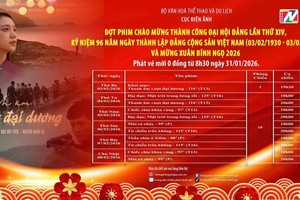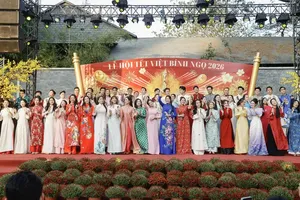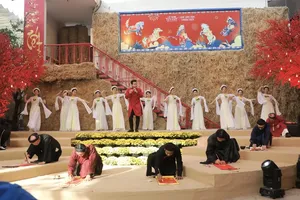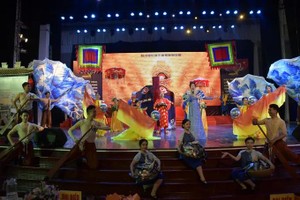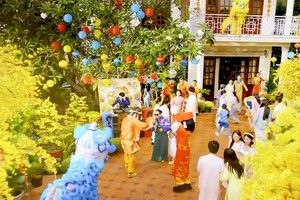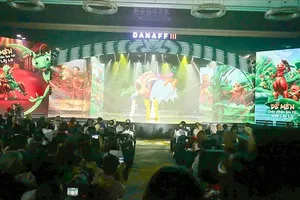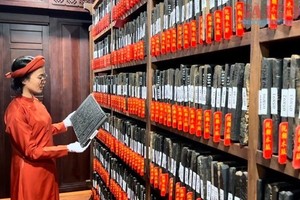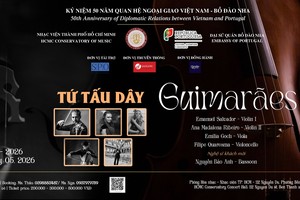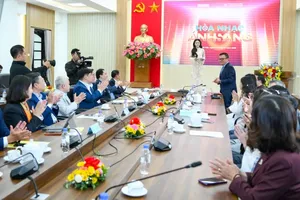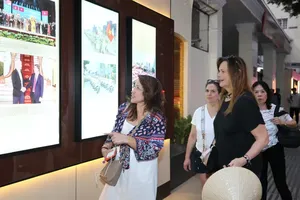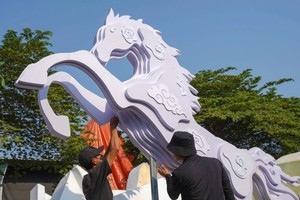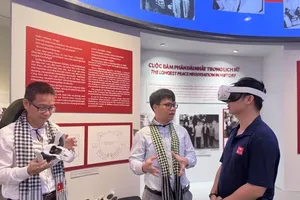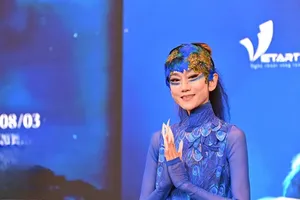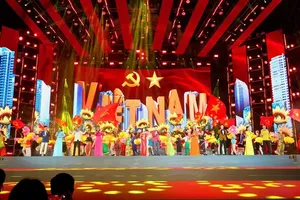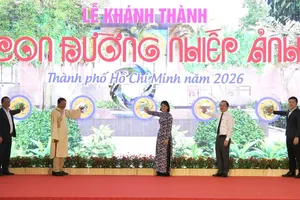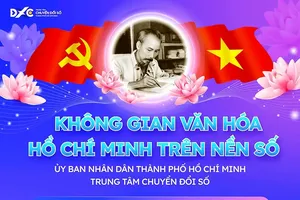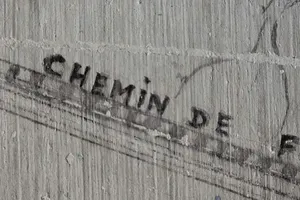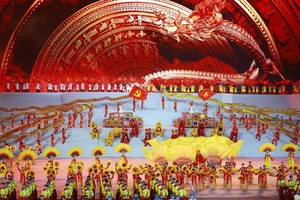The event was co-organized by the Ho Chi Minh City Writers’ Association and Van Lang University in the southern metropolis on July 19.
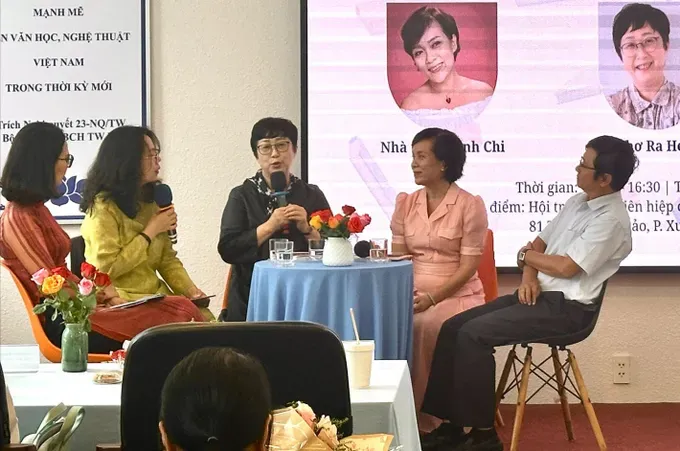
The guests participating in this year’s Vietnam-Korea Literature Exchange program were two poets, Khanh Chi and Le Thieu Nhon, and renowned South Korean poet Ra Heeduk.
This marks poet Ra Heeduk’s fourth visit to Vietnam and her second time in Ho Chi Minh City. Most recently, in June of this year, she took part in a literary exchange with university students during a cultural event held in Da Nang.
According to poet Ra Heeduk, participating in the third edition of the Vietnamese-Korean Literary Exchange is a valuable opportunity to meet Vietnamese colleagues, as well as writers from around the world. It is an experience she believes helps foster deeper mutual understanding among those who devote their lives to the written word.
The Korean writer said that she can sense that the role and standing of poets, regardless of nationality, is gradually diminishing. However, through exchanges, poets can find common ground, forging bonds of friendship that transcend borders and language.
Earlier, the Ho Chi Minh City Writers’ Association also organized a literary exchange between local authors and Dong Xi, also known as Tian Dai Lin, who is a prominent contemporary Chinese writer. Speaking at the exchange, the Chinese writer spoke on the power of connection through literature. He emphasized that writers should tell stories rooted in the places where they live. The stories reflect local color and identity. He noted that, like himself and many writers from Guangxi, China, their works often center on their home region. Guangxi shares many cultural customs with Vietnam, so their stories are often met with empathy and understanding from Vietnamese readers.
The key called translation
In the story related to the exchange and promotion of literary works abroad, translation stands out as a pivotal issue.
According to Hien Nguyen, Chairwoman of the Literary Translation Council under the Ho Chi Minh City Writers’ Association, translation is also a creative process that strives to touch the hearts of readers, enabling them to understand and empathize with the works. Effective translation goes beyond merely converting text from one language to another; it serves as a bridge connecting cultures and, even more profoundly, linking the souls of readers across the world.
Therefore, it can also be said that literature serves as a diplomatic gateway, bringing nations closer together, stated translator Hien Nguyen.
For a long time, poetic exchanges between Vietnam and South Korea have remained implemented at the diplomatic level, primarily consisting of joint anthologies in which each participant contributes only one or two poems.
According to Le Thieu Nhon, Head of the Young Writers Committee under the Ho Chi Minh City Writers’ Association, instead of fragmented and scattered contributions, it would be more effective to select a representative author and translate a dedicated anthology, enabling the public to gain deeper insight into that writer’s style, sentiments, voice, and soul.
Poet Le Thieu Nhon, translating from Vietnamese into Korean remains somewhat challenging at present, so South Korea could take the lead. He suggests introducing a select group of authors each year, with one volume per author, to help Vietnamese readers gain insight into contemporary Korean thought.
He believed that Vietnamese readers would readily embrace contemporary Korea, as Vietnam and South Korea share many cultural similarities, particularly the poets’ shared concerns about human dignity in this era.
Recently, with numerous major literary awards, Korean literature has begun to establish its place on the global literary map. Poet Ra Heeduk emphasized that translation plays a crucial role. The appreciation of literature knows no boundaries, and translation serves as an essential bridge to bring a nation’s literary values to the world.
